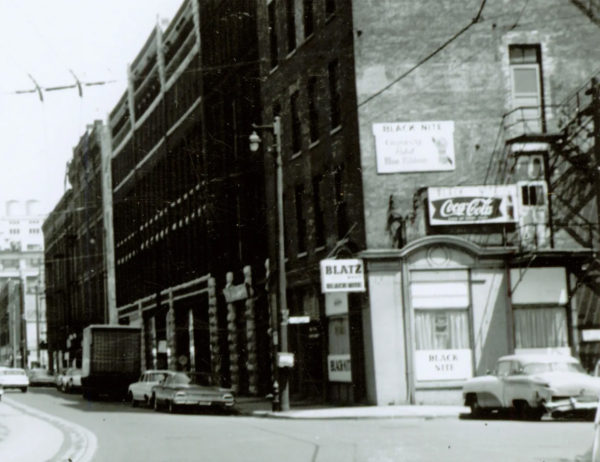LGBTQ history month inspires look into movement's roots
October 14, 2021
Many people believe that LGBTQ history began in June of 1969 with the Stonewall riots of New York. However, eight years prior to the Stonewall riots there was an uprising unlike anything seen before.
Post-World War II the old flourmill at 400 N. Plankinton in Milwaukee, WI, was bought by Harry Kaminsky, a local financer, where he opened his own tavern. However, there was a rocky start, and management was bothered by homosexual clientele that came in from other local taverns. Kaminsky’s response to management was, “If we can’t beat them, let’s join them.” After ridding the homophobic management, Kaminsky employed Wally Whetham and renamed the bar Black Nite.

The Black Nite Tavern was a small bar located in downtown Milwaukee that was welcoming and embracing of all sexual and gender expressions. This was something rare to find in 1961 and hard to come by in a midwestern city. Over time, as the bar gained its regular crowd, patrons became protective over the bar itself and, most of all, what the bar stood for.
On a Saturday night, Aug. 5, 1961, four off-duty policemen went out bar hopping and decided to check out the Black Nite Tavern on a dare. The policemen refused to show their identification to the bouncer at Black Nite and proceeded to be forcibly removed from the property. One of the four men was injured in the altercation with the bouncer and was sent to the hospital. They didn’t take the hint and later came back looking to tear the tavern apart.
When patrons of the bar noticed the four policemen return to the scene, around 75 patrons were ready to attack and defend their home. One of the most influential people at the riot was Josie Carter. Josie Carter was an early queer activist and drag queen from the Milwaukee area. She began going to gay bars in the '50s when she was 18 years old and later became a regular at Black Nite. On the night of Aug. 5, 1961, when Josie Carter was confronted with conflict that threatened her community, she was ready to put up a fight. In an interview with the Wisconsin LGBT history project, she said, “I went out there with a beer bottle in each hand, ready to knock some heads.”
The night of the riot was bloody. One of the Patrons of the tavern suffered a concussion when he was hit with a flying barstool. Not only was the riot bloody, it was also damaging to the Black Nite. According to the police report, the damage included furniture, three broken windows, smashed liquor bottles, and missing keys from an electric organ.
The four policemen reported that they were “grabbed, punched and hit on the head for no reason” when they were removed from the bar. Nobody on the scene that night confirmed or denied this allegation. Whether this is true or not we can conclude that this August night in 1961 will leave a mark on all who are part of the LGBTQ community here in Wisconsin.
